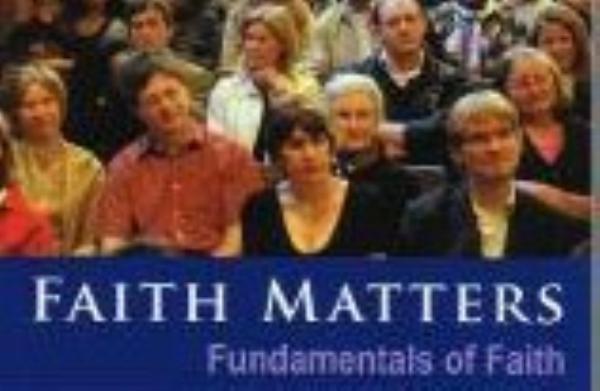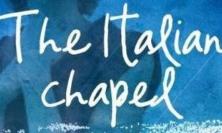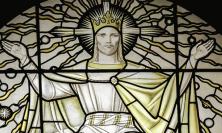This brief but brilliant collection of five lectures delivered in 2009 on Catholic faith and life is just the book for readers of Thinking Faith.
Addressing those big questions such as ‘what do Catholics believe about the Bible?’, ‘what is prayer?’ and ‘what does the Church say about morality?’, five priest-theologians present five powerful essays, each of which takes at most twenty minutes to read but will repay careful, pausing reflection. This is contemporary ‘spiritual reading’.
The briefest essay, ‘Catholics and Prayer’ by Jesuit Fr John Edwards, is a practical guide to personal prayer, capturing its deeply simple essence in words of ‘thanksgiving’ and ‘praise’ and grounding it in the public prayer of the Mass, the liturgical heart of our prayer and practice. Immensely practical and direct throughout, he ends: ‘Go to Confession frequently and love the Mass’.
In ‘Catholics and the Bible’, Fr John Hemer pulls together a brief history of the making of the Old Testament and the second century agreements on the canonical books of the New Testament. He explains why some books are not included, and stresses that the New Testament builds on the Old, complementing it and not displacing it. He explores the relationship between Scripture and Tradition, which Catholics have always insisted go together in the Church, and spells out the role of the Bible in our liturgy. We don’t pick and choose the bits we like; ‘the point of a systematic reading of scripture as our liturgy does today is that in the course of three years of Sundays you read just about all the New Testament and a great deal of the Old Testament’. The point is of course to let scripture, especially the difficult bits, challenge us.
The remaining three essays fit together remarkably well as accounts of the foundations of Catholic morality. Mgr John Armitage explores ‘Catholic Social Teaching; A Guide in Troubled Times’, taking us back to the papal encyclical Rerum Novarum which supported trade union organisation and a basic minimum wage, and reminding us of the great example of Cardinal Manning in the ‘Docklands’ of East London where Mgr Armitage now works in a community organisation championing a ‘living wage’. The dignity of the human person and the search for the common good must not be a private affair but should be reflected in public acts and structures to root out ‘public evil’.
Like Mgr Armitage, both Fr Stephen Wang and the Dominican Friar Fr Richard Finn insist on drawing us back to fundamentals. In ‘Christian Morality and the Search for Happiness’, Fr Stephen Wang stresses that, contrary to popular impressions, morality is not primarily about external rules and regulations to be kept but rather is concerned with ‘the human search for happiness’. He takes us through various definitions of ‘happiness’, from Greek philosophers to the Sermon on the Mount, and spells out how Christian morality seeks the fulfilment of our human nature, revealed to us by a loving God. We are therefore called to love others as Jesus loved, to a deeper generosity, to go the extra mile, ‘going beyond what at first sight seems sensible and reasonable’. We are ever called beyond that to ‘sacrificial love’, ‘accepting the costs and sacrifices of being a follower of Christ’.
Fr Richard Finn’s essay is solidly within the reflective and at the same time practical tradition of the great Dominican moral theologians (including recently Fr Herbert McCabe). He gives at the beginning this summary:
To be a Christian is to be called to holiness and to find in such holiness our eternal happiness. The drive for happiness which God has built into our make-up is to be fulfilled ultimately by sharing in the love which unites the Father, Son and Spirit in the Trinity. This is the life into which we are baptised; this is the life which we anticipate in the Eucharist, it is this which strengthens and extends our love of neighbour, not least to forgive and seek forgiveness.
Fr Finn’s first paragraph reads like a contemporary Credo; a succinct and joined up précis of what we believe and try to live out. In accordance with the ideas of St Thomas Aquinas, his account naturally focuses on the tradition of virtues and stresses that ‘our in-built drive towards happiness’ makes ‘common sense’ and is perfectly reasonable.( Fr Stephen Wang refers to the moral foundations built in to who we are as human beings as ‘natural law’.) But it is in his analysis of sin or ‘vices’ as ‘over-attachments’ that Fr Finn is most enlightening for our times, particularly when he carefully differentiates three ‘texting’ sinners! Over-attachment, he argues, ‘can impair our moral reasoning’ but we ‘lay claim to a Church within which we hope to reason and discern well by grace along the same lines as anyone else’. Authority and conscience, therefore, in the Church and in society may not be the individualistic, privatised, unreasonable responses that we are sometimes invited to see them as. Fr Finn and Fr Wang take us deeper, understanding us as more positively human before a loving God.
The reviewer, John Battle, is former Member of Parliament for Leeds West.
The final lecture in the 2010 Advent series of Faith Matters will focus on ‘Newman and Friendship’. It will be given by by Fr Daniel Seward CO, the Parish Priest of the Oxford Oratory. The lecture will take place in Westminster Cathedral on 14 December at 7pm. For more information please contact Ausra Karaliute on 020 7931 6078 or e-mail [email protected]






